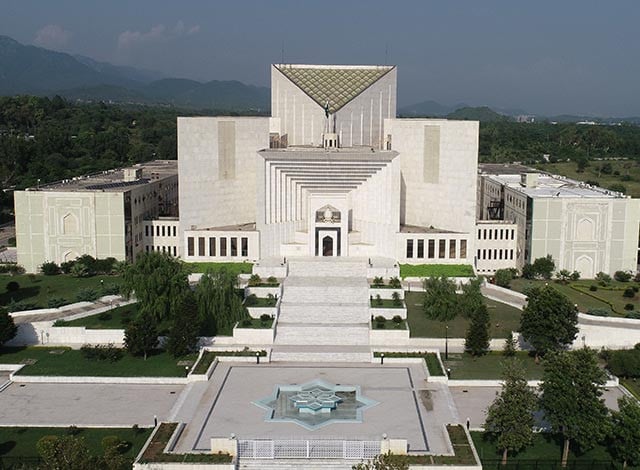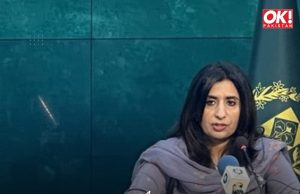ISLAMABAD: On Monday, the Supreme Court was asked to form an inquiry commission made up of three senior judges to look into the substance and background of a letter sent by six current justices of the Islamabad High Court (IHC) concerning the alleged meddling of intelligence services in court cases and the surveillance of judges’ homes.

The former president of the Press Association of the Supreme Court (PAS), advocate Khudayar Mohla, has claimed the apex court’s jurisdiction under Article 184(3) of the Constitution.
Mohla listed the federal government as respondents in the action, along with the prime minister, secretaries of the cabinet division, the ministry of law and justice, and the ministry of interior, through his attorney, Dr. GM Chaudhry.
The action was taken in advance of a significant hearing that is slated for April 30. Chief Justice of Pakistan (CJP) Qazi Faez will preside over a larger bench consisting of six members who will deliberate on the subject.
Khudayar Mohla asked for a commission to look into the letter thoroughly and “to fix responsibility of persons in their official status who had indulged in interfering judicial working of the said learned judges to close backdoor of interference by any executive authority or intelligence agency, etc., in the interest of justice and independence of the judiciary” in his plea to the SC for redressal in the case.
The petitioner sought the court’s directives to all respondents for the immediate enactment of a law defining and prescribing the powers, functions, and duties of officials and officers of the intelligence agencies within a specified timeframe under notification to the top court, citing suo motu action regarding the Islamabad-Rawalpindi dharna verdict.
He emphasized the importance of holding officials accountable for any misconduct they may have committed in violation of constitutional principles, as well as the concept of equality before the law.
Advocate Mohla sought for orders from the supreme court to the respondents to start the enactment of a law in accordance with Article 212(1)(b) of the Constitution, citing a verdict by the Supreme Court to support his position. With regard to tortious conduct or illegal omissions, this law would provide penalties and restitution for Pakistani nationals who have been wronged.
In addition, the petitioner asked that the respondents be given orders to create suitable guidelines and policies. This will stop public employees in particular departments from carrying out their tasks in an arbitrary way, as per current practices and norms.
He continued, saying that these procedures—which are frequently followed by office memos, letters, or instructions—have no legal standing and must be changed.




















































